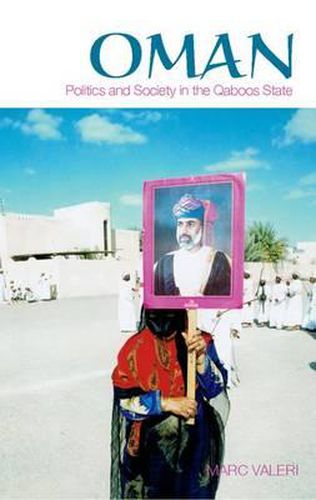Readings Newsletter
Become a Readings Member to make your shopping experience even easier.
Sign in or sign up for free!
You’re not far away from qualifying for FREE standard shipping within Australia
You’ve qualified for FREE standard shipping within Australia
The cart is loading…






When Sultan Qaboos overthrew his father as ruler of the Persian Gulf state of Oman in 1970, with the help of British advisers, few expected him to survive long. He was unknown to his own population, and the country was poor and plagued by civil wars. Yet he has built his regime’s legitimacy on a policy of national unification, the assimilation of all of Oman to the oil rentier state framework, and of his state to the person of the sultan, the incarnation of the country’s renaissance. This books seeks to understand the mechanisms of social and political perpetuation of authoritarianism in post-colonial states such as Oman. It shows how one monarchical power has built and constantly renewed its basis to meet the internal and external challenges threatening its stability. Yet this book also raises the question of what happens when one part of this model, namely an oil-rent economy,
falters, with half the population under fifteen years of age and when the privileges enjoyed till recently may no longer be tenable. Valeri also sheds light on the strategies adopted and challenges faced by other Arab monarchies in the Persian Gulf, Morocco and Jordan.
$9.00 standard shipping within Australia
FREE standard shipping within Australia for orders over $100.00
Express & International shipping calculated at checkout
When Sultan Qaboos overthrew his father as ruler of the Persian Gulf state of Oman in 1970, with the help of British advisers, few expected him to survive long. He was unknown to his own population, and the country was poor and plagued by civil wars. Yet he has built his regime’s legitimacy on a policy of national unification, the assimilation of all of Oman to the oil rentier state framework, and of his state to the person of the sultan, the incarnation of the country’s renaissance. This books seeks to understand the mechanisms of social and political perpetuation of authoritarianism in post-colonial states such as Oman. It shows how one monarchical power has built and constantly renewed its basis to meet the internal and external challenges threatening its stability. Yet this book also raises the question of what happens when one part of this model, namely an oil-rent economy,
falters, with half the population under fifteen years of age and when the privileges enjoyed till recently may no longer be tenable. Valeri also sheds light on the strategies adopted and challenges faced by other Arab monarchies in the Persian Gulf, Morocco and Jordan.